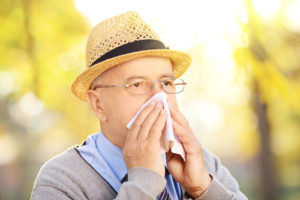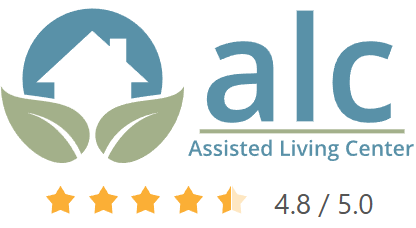
All the plants and flowers will release countless grains of pollen into the air, and people who are sensitive to it will start experiencing the tell-tale signs of spring allergy; a runny nose, watery eyes and constant sneezing are just the tip of the iceberg, as there are far more visceral and dramatic reactions to pollen. It can make senior care in Beverly Hills quite challenging and problematic.
So, what can you do for seniors who suffer from this nuisance? A good caregiver should know these basic rules for a happy and carefree pollen allergy season.
Do Not Disregard Allergies
If you have never experienced this problem, it may be hard for you to realize how crippling this problem may be. However, they can lead to countless complications, including heart issues, especially in elderly, whose immune systems are already strained more often than not.
Be careful at the beginning of spring, and be on a lookout for the customary symptoms of allergies like watery eyes, stuffy nose, and scratchy throat. In fact, perhaps it would be best to consult their doctor about an allergy test, so you can be prepared for the outbreak once it starts.
Stock Up On the Allergy Medication
Traditionally, allergies are managed by antihistamines. In fact, they are among the most prescribed medications in the USA. However, when it comes to seniors, introducing any new medication can be potentially dangerous, as you cannot know how the new drug will interact with the medication that the senior is already taking.
Be sure to consult the doctor before you give them any anti-allergy medication. The doctor will be able to tell you if there are any side effects which they may experience, and how they would affect the senior. Some of these can cause excessive drowsiness and disorientation, which may affect the senior’s quality of life quite dramatically.
Manage the Symptoms with Diet
Even if you are thinking that seasonal allergies have nothing to do with food, you may want to practice caution. Not only can you avoid some foods to reduce the chance of an allergic reaction, you can also increase their intake of foods which may be able to reduce inflammation, and thus significantly help with this issue.
Make sure that fresh produce is washed thoroughly, as pollen may still lurk in there somewhere. Be careful which spices you are using, as some of them may trigger an allergic reaction just like pollen does. On the other hand, there are some foods like apples and leafy greens with anti-inflammatory properties. These foods, as well as walnuts, can be used for this purpose.
Proper Cleaning Practices
Cleaning is one of those chores that simply must be done, regardless of how you feel and the time of the year. However, once the allergy season kicks in, you should be careful about your cleaning technique near your senior.
Changing the sheets often can help them sleep better, as the hidden pollen will be more effectively removed. For the same reason, make sure to avoid dusting the house when they are around. Even though it is a good cleaning practice, you should still be careful, as dusting can pick up the pollen from the surfaces and get it airborne again, where it can cause some damage once again.
If you have a senior who needs extra care during the allergy season, consider hiring professional caregivers referred by A Better Way In Home Care. These professionals are experienced in working with seniors and know what the seniors need. Contact A Better Way In Home Care for more information.








